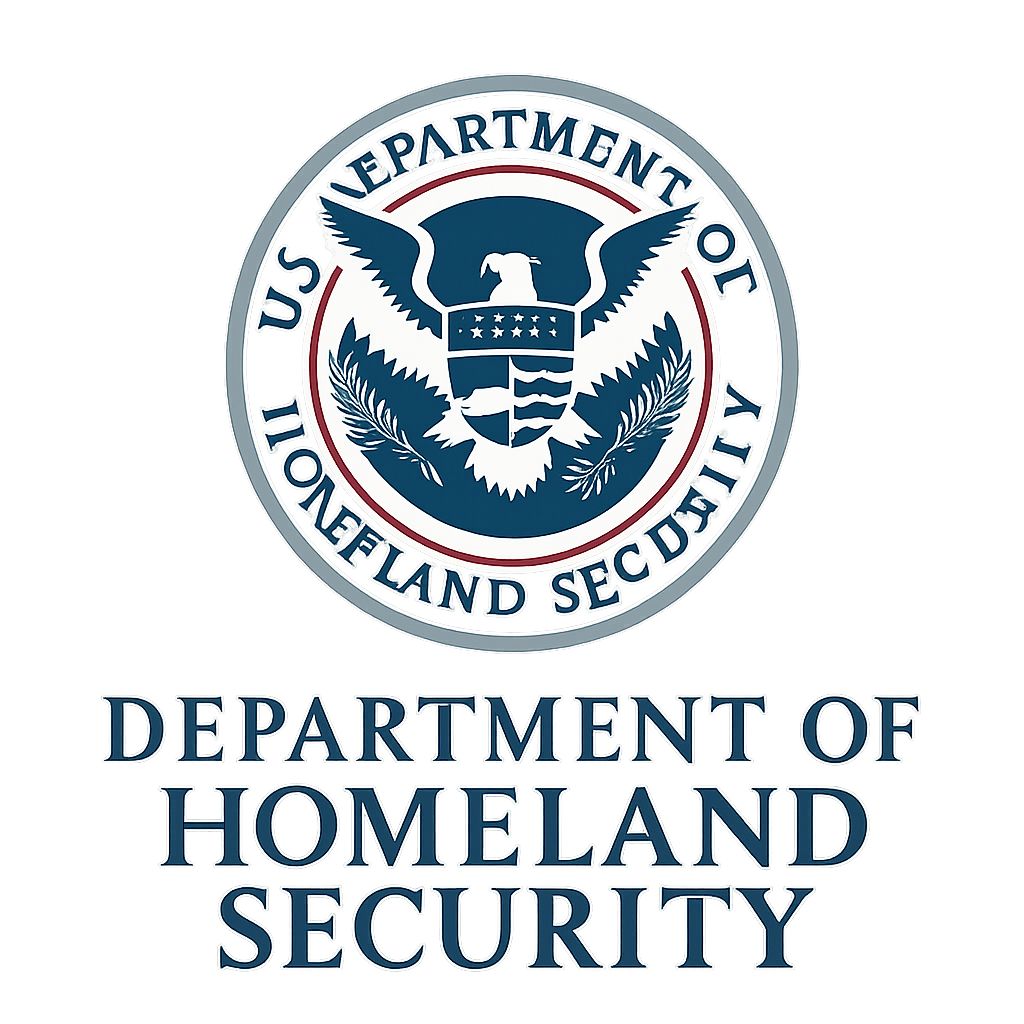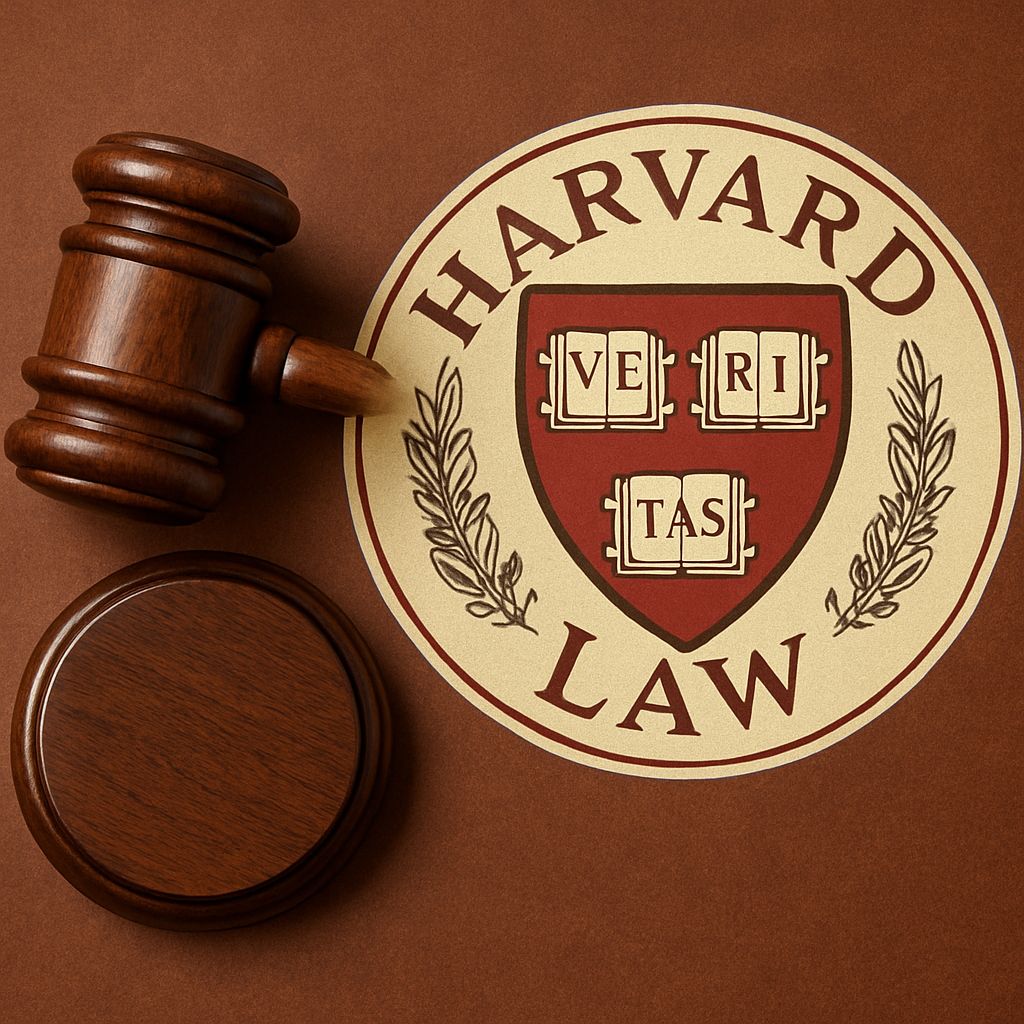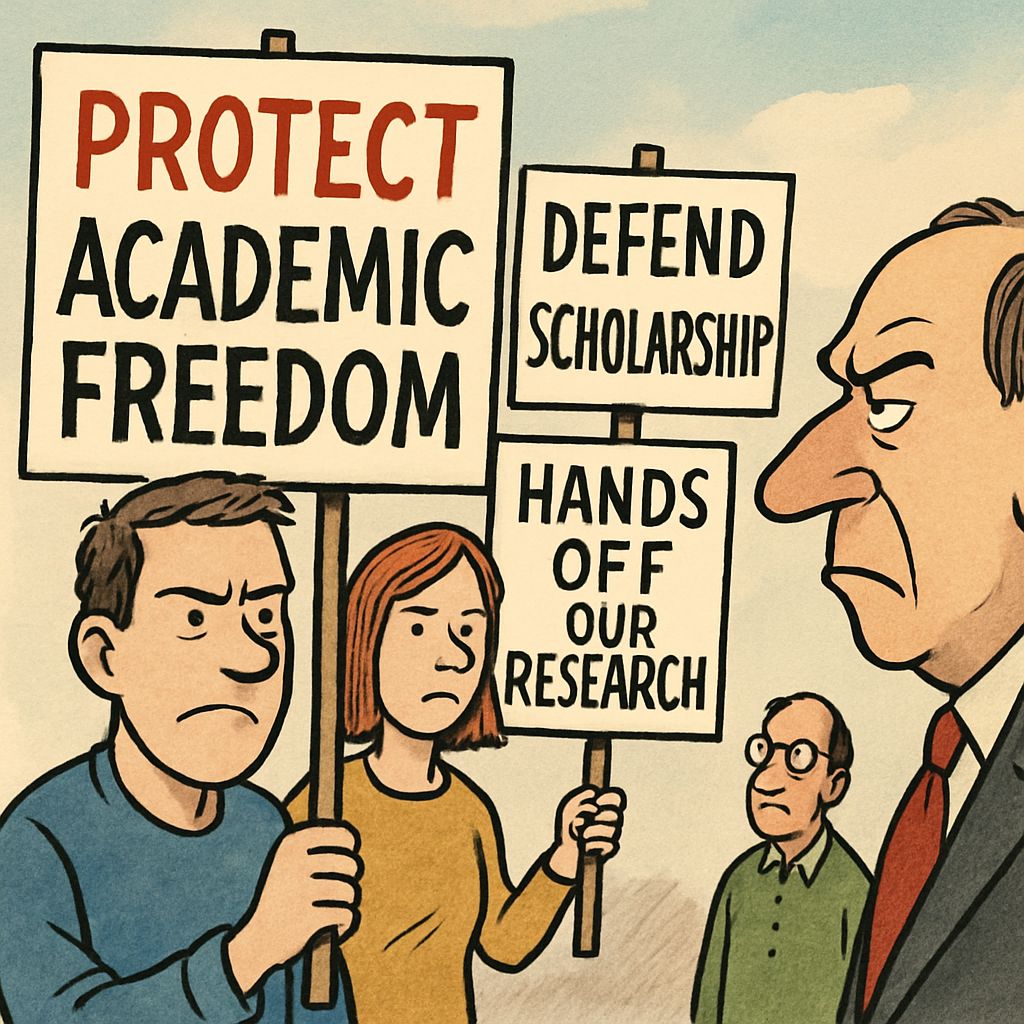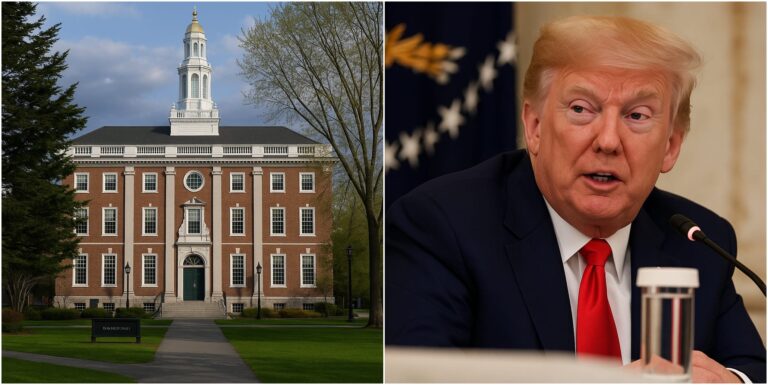Harvard SEVP Lawsuit: 7 Shocking Facts About the Government’s Student Ban🚨
Have you ever wondered what would happen if one of the world’s most powerful governments took on one of the world’s most prestigious universities?
That’s exactly what’s happening right now with the Harvard SEVP lawsuit, and trust me—this isn’t just another political headline. It’s about immigration, free speech, student rights, and the future of U.S. higher education.
“The Harvard SEVP lawsuit isn’t just a legal case—it’s a turning point for international education policy in the U.S.”
-
“This chapter of the Harvard SEVP lawsuit reveals deeper political agendas…”
-
“Legal scholars analyzing the Harvard SEVP lawsuit argue this sets a dangerous precedent.”
🧵 Is this something you want to search the entire internet for, analyze it, and separate it from everyone else?
After analyzing everything online and gathering real-world insights, the Bhussan.com team shares this friendly, helpful article.
What Sparked the Legal War Between Harvard and the Trump Administration?🌎

In May 2025, the Department of Homeland Security (DHS) under the Trump administration dropped a bombshell: Harvard University was stripped of its ability to host international students under the Student and Exchange Visitor Program (SEVP).
Why? DHS claimed:
-
Harvard created an “unsafe environment” for Jewish students
-
The university promoted “pro-Hamas sympathies.”
-
Its diversity and equity programs were “racially discriminatory.”
-
It had undisclosed links with the Chinese Communist Party
The backlash was instant. Harvard filed a lawsuit over SEVP revocation within hours.
Imagine being told your entire international student program is canceled—in just 72 hours. 😱
What Did DHS Demand from Harvard?🔒

The DHS letter came with six extreme conditions:
-
Video footage of all protests since 2020
-
Student disciplinary records linked to activism
-
Official policies about Middle East neutrality
-
End to DEI policies deemed “racial”
-
A public anti-antisemitism statement
-
Complete disclosure of foreign funding (especially Chinese)
Sound invasive? That’s because it is.
According to legal analysts, this was less about student safety and more about political control. Source: ACLU on student rights
What Harvard Argued in Court📚

Harvard didn’t stay silent. Here’s what their lawsuit claimed:
-
The action violated the First Amendment (freedom of speech)
-
There was no due process or investigation
-
The impact would cause “immediate and irreparable harm”
-
Over 7,000 students would lose their visa status
“With a stroke of a pen, the government tried to erase a quarter of our student body,” Harvard’s filing said.
A federal judge agreed — at least temporarily. Judge Allison Burroughs granted a Temporary Restraining Order, freezing the revocation until a full hearing. Source: Federal Court Documents – PACER
Why International Students Are So Crucial to Harvard🌟
Let’s talk numbers and impact:
-
International students make up 27.2% of Harvard’s student body
-
Their tuition and fees contribute hundreds of millions annually
-
They enrich academic diversity and help power STEM research and innovation
If SEVP certification is revoked:
-
Harvard can’t issue new I-20 forms
-
Incoming students are blocked
-
Current students face deportation or must transfer
It’s not just Harvard. This sets a terrifying precedent for all U.S. universities. 🌎
The Bigger Picture: Trump, Free Speech, and University Control🏛️

This isn’t an isolated battle.
Trump’s administration has:
-
Pulled $2.2 billion in federal funds from Harvard
-
Investigated its tax-exempt status
-
Accused it of “harboring anti-American ideologies”
-
Targeted students protesting U.S. policy in Gaza
This is about redefining what American universities stand for—and who controls them.
Should government decide what students can protest? Or who universities can admit?
📊 Pros & Cons of the Government’s Action
| Pros | Cons |
|---|---|
| Claims to protect student safety | Violates free speech rights |
| Pushes for transparency | Politically motivated demands |
| Addresses foreign influence | Risks of mass student displacement |
| May appeal to a conservative base | Undermines U.S. academic reputation |
❓ FAQs (30+ Questions Answered)
1. What is SEVP, and why is it important?
SEVP stands for the Student and Exchange Visitor Program. It’s a system that allows U.S. schools to host international students legally. Without it, students can’t get visas, and schools can’t admit them. It’s the backbone of international education in the U.S.
2. Why did DHS revoke Harvard’s SEVP certification?
The Department of Homeland Security (DHS) accused Harvard of fostering an unsafe campus, promoting pro-Hamas sentiment, and failing to provide transparency in foreign funding. This led to the revocation of its SEVP status—a move critics say is politically motivated.
3. What are I-20 forms?
These are documents issued by SEVP-certified schools like Harvard. They’re essential for students to apply for and maintain F-1 (student) visas. Without an I-20, students can’t legally study in the U.S.
4. Can Harvard still admit international students?
Not right now. Unless the temporary restraining order becomes permanent or SEVP certification is restored, Harvard cannot issue I-20s, meaning it can’t admit or enroll new international students.
5. What is a temporary restraining order?
It’s a short-term legal block to stop an action—in this case, the SEVP revocation—until a court fully hears the case. It gives Harvard a legal “pause” to argue its side.
6. Who is Judge Allison Burroughs?
She’s the federal judge who granted Harvard the temporary restraining order. Appointed under the Obama administration, she’s known for her rulings on immigration and academic freedom.
7. Did other universities face the same threat?
Not yet, but legal experts believe Harvard is a “test case.” If successful, similar actions could target other top schools with large international populations or outspoken campuses.
8. How many international students does Harvard have?
Over 7,000 international students make up 27.2% of its student body. That’s more than a quarter of its entire enrollment.
9. Is Harvard losing funding from other sources?
Yes. In addition to the SEVP issue, the Trump administration has frozen or pulled over $2.2 billion in federal funds, including research grants and educational subsidies.
10. What does this mean for U.S. higher education?
It sets a troubling precedent. If the government can use visa programs to punish universities, it could chill academic freedom and deter foreign talent from coming to the U.S.
11. Will international students be deported?
Those already enrolled are temporarily protected under the restraining order. But if the SEVP status isn’t restored, many may have to leave or transfer to another school.
12. Are student protests being criminalized?
That’s one of the major concerns. DHS is demanding footage and disciplinary records of students involved in Middle East protests, raising alarms about surveillance and suppression of speech.
13. What does the First Amendment say about this?
The First Amendment protects free speech, even unpopular speech. Harvard argues that punishing the university for student protests violates this constitutional right.
14. Could this case reach the Supreme Court?
Potentially, yes. If lower courts rule against Harvard or the government appeals, this could become a landmark case on education, speech, and immigration rights.
15. What is DEI, and why is it controversial?
DEI stands for Diversity, Equity, and Inclusion. DHS claims Harvard’s DEI policies are racially biased. Supporters say these initiatives help build fair, inclusive campuses.
16. Is this related to the Israel-Palestine conflict?
Yes. The timing coincides with campus protests about Gaza. Harvard’s alleged “pro-Hamas” sympathies stem from how student groups expressed support for Palestinian civilians.
17. Did Harvard actually support Hamas?
No official stance from Harvard supports Hamas. The DHS claims are based on protest language and group affiliations, not any institutional endorsement.
18. Are other Ivy League schools targeted?
Not officially, but several are being investigated for similar issues around protests and foreign funding. Harvard may be the first domino.
19. Can students sue DHS individually?
Yes, but it’s rare. Some students may file class actions or seek legal protections if their visas or rights are affected.
20. What happens if Harvard loses?
It loses SEVP status permanently. Thousands of students may be forced out, and Harvard could face broader sanctions or restrictions.
21. Will students get refunds?
If they’re forced to leave, Harvard may offer prorated refunds. However, legal obligations vary based on visa status and contractual terms.
22. Can international students transfer quickly?
Yes, but only to SEVP-certified schools. The process is time-sensitive and requires coordination with immigration lawyers and admissions offices.
23. What rights do non-immigrant students have?
They have rights under U.S. law—like due process and free speech—but these can be limited compared to citizens. SEVP status is vital to their legal standing.
24. What role does ICE play in this?
ICE (Immigration and Customs Enforcement) oversees SEVP. They’re the enforcement arm that can remove a school’s certification or initiate deportations.
25. Why is foreign funding a problem?
DHS alleges that foreign governments—especially China—could influence U.S. universities through donations. Critics say this concern is exaggerated and politically driven.
26. What are the political motivations here?
Analysts say the Trump administration is using education policy to fuel its base, framing elite universities as hubs of “anti-American” values.
27. How can students protect themselves?
-
Stay informed
-
Consult immigration attorneys
-
Join campus advocacy groups
-
Document all visa-related communication
28. Are international students still safe in the U.S.?
Legally, yes. But emotionally and socially, many feel targeted. The current climate has made many question whether they’re truly welcome.
29. What is Harvard doing next?
Harvard is fighting in court and lobbying Congress. University leadership also engages international alumni and legal scholars for support.
30. How can people support affected students?
-
Donate to legal funds
-
Spread awareness
-
Contact elected officials
-
Offer housing or academic resources for displaced students
Conclusion: The Fight for Harvard’s Soul🚀
This isn’t just a legal battle. It’s a clash of ideologies, a debate over power, and a test of academic freedom.
Whether you’re a student, a parent, a professor, or just someone who cares about truth and education, this case matters.
Let’s keep our eyes on the courtroom. What happens next could change the future of American education.
📉 Stay updated with Bhussan.com — where news meets clarity.
End with a punch: “Ultimately, the Harvard SEVP lawsuit could shape the next generation of immigration and education policy in America.”
“This chapter of the Harvard SEVP lawsuit reveals deeper political agendas…”
“Legal scholars analyzing the Harvard SEVP lawsuit argue this sets a dangerous precedent.”

